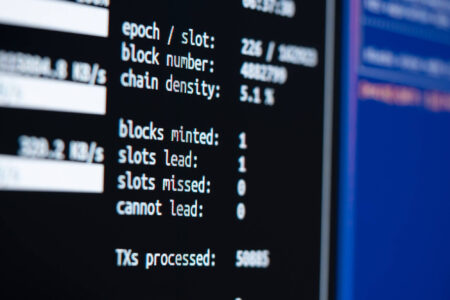The Metaverse has been the talk of the town lately, with both Facebook and Microsoft staking their claim to it. By definition, it is a digital alternative to the physical world, but how exactly can we imagine the Metaverse and when will it become a reality?
The Metaverse is not a game and has no set destination; it simply represents its own digital reality. The Metaverse thus encompasses far more areas of life than today's Internet. Leading companies around the world are beginning to recognize the potential and exploit it for their own benefit. What follows is an overview of the Metaverse, its emergence, contributing players, and an exploration of the question: when will it come?
What is the Metaverse?
The term Metaverse was first used in the 1991 science fiction novel Snow Crash by Neal Stephenson. In it, the author describes the Metaverse as a global virtual reality in which people are represented as avatars and live their lives digitally, as in today's online games. However, the Metaverse is not an all-encompassing game; there is no high score and no set goal. The Metaverse is much more a digital alternative to the physical world.
In Matthew Ball's essay, published in 2020 and considered one of the most influential essays on the Metaverse, the venture capitalist identifies seven core attributes of the Metaverse:
- The Metaverse will be persistent - that is, it will never "reset" or "pause" or "terminate," but will simply go on indefinitely.
- It will be synchronous and live - even though pre-planned and self-contained events will occur, just as in "real life", the Metaverse will be a living experience that exists consistently and in real-time for everyone.
- There will be no cap on the number of simultaneous users, while at the same time giving each user an individual sense of "presence" - everyone can be a part of the Metaverse and participate in a particular event/place/activity together, at the same time, and with individual agency.
- It will be a fully functioning economy - individuals and businesses will be able to create, own, invest, sell and be rewarded for an incredibly wide range of "work" that creates "value" that is recognized by others.
- It will be an experience that spans both the digital and physical worlds, private and public networks/experiences, and open and closed platforms.
- It will provide unprecedented interoperability of data, digital items/assets, content, etc. across all of these experiences - for example, a Counter-Strike weapon skin could also be used to adorn a weapon in Fortnite or gifted to a friend via Facebook. Similarly, a car designed for Rocket League (or even the Porsche website) could also be used in Roblox. Today, the digital world basically behaves like a shopping mall, where each store uses its own currency, requires its own IDs, has its own units of measurement for things like shoes or calories, and different dress codes.
- It is populated by "content" and "experiences" created and operated by an incredible variety of contributors, some of whom are independent individuals, while others may be informally organized groups or commercially oriented companies.
Ball expects the Metaverse to generate even more revenue than the Web already does today. It is this prediction that may have been the deciding factor in prompting Zuckerberg and Sweeney to enter the field so early. After all, just as Internet corporations have been able to topple many classic companies from their thrones, the future success of the Metaverse could lead to "many top dogs falling" - at least if Ball is right.
The working environment in the Metaverse
Apart from the shift to virtual reality, the Metaverse would not differ significantly from today's Web. The only difference is that it would encompass many more areas of our lives - and thus further change the world of work.
"While this "work" is typically menial, repetitive and limited to a few applications, the variety and value of this "work" will grow with the Metaverse itself. The value of being a major participant, if not a driving force, of such a system is obvious - there is no "owner" of the Internet today, but almost all of the leading Internet companies are among the top ten most valuable public companies in the world." - Matthew Ball
As an example, Ball cites companies that already hire video gamers in poorer countries to earn in-game objects that are then sold to gamers from richer countries. The venture capitalist expects the Metaverse to generate even more revenue than the Web already does today.
Leading companies recognize the potential of the Metaverse
Meta founder Mark Zuckerberg, as well as Fortnite CEO Tim Sweeney and Microsoft CEO Satya Nadella, have all recognized the potential of the Metaverse and are reorienting themselves in this regard. Since Stephenson's science fiction novel, various developments have set milestones on the road to a true Metaverse, an online virtual world that includes augmented reality, virtual reality, 3D holographic avatars, video and other means of communication.
As the Metaverse expands, it will provide users with a hyperreal alternate world in which they can co-exist. Hints of the Metaverse already exist in online game universes like Fortnite, Minecraft and Roblox. And the companies behind these games also have ambitions to participate in the development of the Metaverse.
Self-determination instead of platform dependency
Many roads lead to the Metaverse, and it doesn't seem to be a fad. Instead of using a Facebook login, which probably has the history of the physical world attached to it, new digital identities can be created. A new identity can easily spring from each wallet, which can be contextually extended in the Metaverse. The transaction history and the possession of corresponding NFTs write an automatic and forgery-proof biography. An avatar reflects the digital identity and can be dressed accordingly in the Metaverse.
The identity per se is not platform-dependent, but just like objects and other things, decentralized in the corresponding blockchain wallet of the owner. However, whether this is still represented outside of a platform or contains the promised function depends on the manner of the NFTs created. An NFT to a certain standard (e.g., ERC-721) can be moved, sold, or destroyed by the owner wallet at any time without involving a third party.
Silicon Valley is positioning itself
Let's take a quick look at Meta. The tech giant formerly known as Facebook has already made significant investments in virtual reality. Driven in part by its early acquisition of Oculus in 2014, Meta envisions a virtual world where digital avatars use VR headsets to connect with each other at work, while travelling or for entertainment. Zuckerberg has expressed optimism about the Metaverse and believes it could replace the Internet as we know it.
"The next platform and the next medium is going to be an even more immersive and embodied Internet where you're having the experience, not just looking at it, and we call that the Metaverse." - Mark Zuckerberg Meta-CEO
Meta's Silicon Valley competitors have also recognized the potential of the Metaverse. Software giant Microsoft is already using holograms and developing mixed and extended reality (XR) applications with its Microsoft Mesh platform, which augments the real world by combining it with things from virtual reality.
Earlier this month, Microsoft unveiled plans to bring mixed reality, including holograms and virtual avatars, to Microsoft Teams in 2022. Explorable 3D virtual spaces for retail and the workplace are also in the works for next year. The U.S. Army is currently working with Microsoft on a Hololens 2 augmented reality headset that soldiers can use to train, rehearse and fight. In addition, Xbox Live already connects millions of video gamers around the world.
So when is the Metaverse coming?
Basically, it's already there, but at the moment it's probably more useful or even immersive for technically-savvy people with powerful computing devices. Current VR headsets for moving around in the Metaverse start at around 600 francs. More versatile are the sets with input devices, which encourage creative people to carry their own creations into the Metaverse.
Metas CEO Mark Zuckerberg estimates that it could take five to ten years for the main features of the Metaverse to become established. Some aspects of the Metaverse already exist. Ultra-fast broadband speeds, virtual reality headsets and permanent online worlds are already in operation, although they may not be accessible to all. Thus, it is a matter of the near future before the Metaverse makes the leap into the broader general public.








